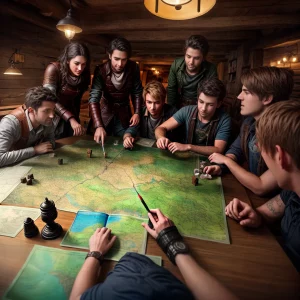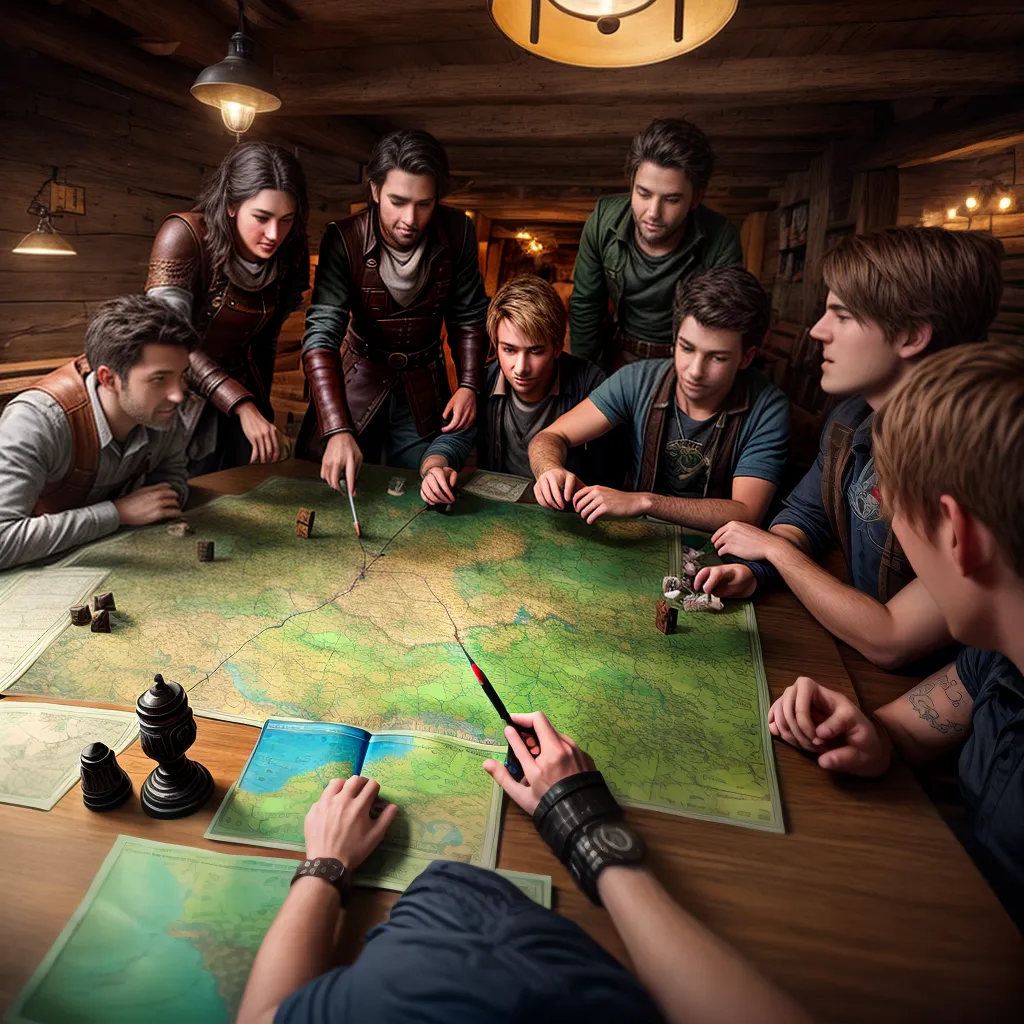
In recent years, RPGs have become increasingly popular. However, the question arises: do they have an influence on our creativity and imagination? This is exactly what we intend to find out in this article.
What are RPG games?
Role-playing games, or RPGs, are a genre of video games that allow players to take on the role of fictional characters in an imaginary world. Players have the freedom to create and develop their characters, make decisions that affect the storyline, and interact with other players or the game environment.
In role-playing games, players usually play the role of heroes or protagonists, embarking on an adventure that may involve exploring dungeons, solving puzzles, fighting enemies, and undertaking quests.
Role-playing games fall into different subgenres, such as action RPGs, in which combat is real-time and emphasized, strategy RPGs, in which planning and decision-making are key, and MMORPGs (Massively Multiplayer Online Role-Playing Games), which allow a large number of players to interact in a shared world.
In addition to video games, RPG is also a popular format in tabletop games, such as Dungeons & Dragons, where players come together to tell stories together, with a game master leading the narrative and players taking on specific roles.
How RPGs influence creativity and imagination:
Role-playing games have a significant impact on players’ creativity and imagination. They provide an environment rich in stories, characters, and imaginary worlds, encouraging players to explore and create within these settings. Here are some ways in which role-playing games influence creativity and imagination:
Character creation:
Role-playing games often offer extensive character creation options, allowing players to customize physical characteristics, skills, backstory, and personality. This fosters creativity as we encourage players to develop unique and engaging characters.
Decision making:
Many role-playing games feature choices that affect the plot and course of the game. Players are challenged to make strategic decisions that shape the narrative. This freedom of choice stimulates imagination as we encourage players to explore different paths and consider the consequences of their actions.
Exploration of imaginary worlds:
Role-playing games often feature vast, detailed worlds filled with unique landscapes, cities, creatures, and cultures. Players are encouraged to explore these environments, discover secrets, and interact with NPCs (non-player characters). This exploration fuels the imagination, as players can imagine and visualize these fictional worlds in detail.
Engaging narrative:
Role-playing games are known for their rich and engaging stories. They immerse players in thrilling plots with twists and turns, intriguing characters, and epic conflicts. These narratives stimulate players’ imaginations, inspiring them to create and engage with the storyline.
Social interactivity:
Many role-playing games allow for social interactions between players, whether through massively multiplayer online games, cooperative multiplayer, or tabletop games. This social interactivity encourages creativity as players can collaborate, improvise, and create stories together, expanding their collective imagination.
In short, role-playing games provide a creative space where players can develop characters, explore imaginary worlds, make meaningful decisions, and engage in compelling narratives. These experiences foster creativity and imagination, allowing players to actively participate in the construction and development of compelling stories and characters.
Studies on RPG and creativity development:
According to recent research, RPG games have been shown to be effective contributors to the development of creativity. A study conducted in 2021 revealed that RPG players showed a significant improvement in their creative abilities after a period of playing.
How RPG games can be used as an educational tool:
These types of games aren’t just for fun. They can be an effective educational tool, helping students develop problem-solving, teamwork, and critical thinking skills. Some educators are already using RPGs in their classrooms with great success.
Role-playing games are more than just games; they are powerful tools for personal development. They also stimulate creativity and imagination, and provide a unique way to learn and grow. With their popularity continuing to grow, we are likely to see even more innovation and new uses for RPGs in the future.
